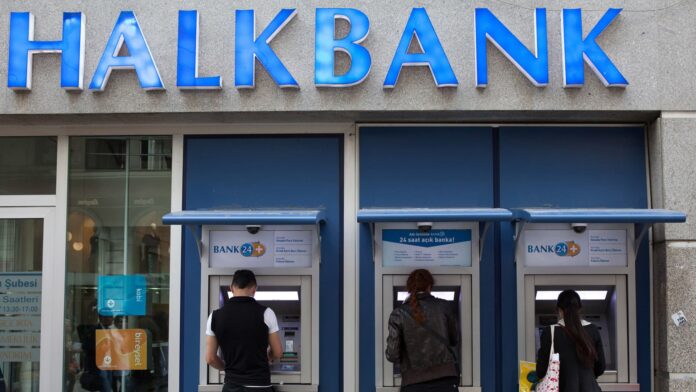Halkbank in Istanbul, Turkey.
Kemel Uzel | Bloomberg | Getty Images
The Supreme Court ruled Wednesday that Halkbank, which is owned by the government of Turkey, is not immune from criminal indictment in New York federal court under the Foreign Sovereign Immunities Act of 1976 for allegedly violating U.S. economic sanctions on Iran.
But the Supreme Court kicked back to a federal appeals court the question of whether Halkbank still can claim sovereign immunity from prosecution in the United States under common law.
That raises the prospect that the Supreme Court will again be asked in the future to rule on the legality of the prosecution.
The indictment in Manhattan federal court alleges that high-ranking Turkish and Iranian government officials participated in the sanctions evasion scheme with Halkbank and its officers.
“On Halkbank’s view, a purely commercial business that is directly and majority-owned by a foreign state could engage in criminal conduct affecting U. S. citizens and threatening U. S. national security while facing no criminal accountability at all in U. S. courts,” Justice Brett Kavanaugh wrote in the majority opinion, in which he was joined by six other justices.
“Nothing in the FSIA supports that result,” Kavanaugh wrote.
However, the Supreme Court told the U.S. 2nd Circuit Court of Appeals to reconsider a request by Halkbank to toss out the prosecution based on an argument of common-law immunity.
The Supreme Court previously recognized that a civil lawsuit not governed by the FSIA law may still be barred under by foreign sovereign immunity under so-called common law.
The U.S. government has argued that the bar would not apply to criminal prosecution of a commercial entity such as Halkbank.
Halkbank did not immediately respond to a request for comment on the Supreme Court’s ruling.
Justice Neil Gorsuch filed a separate opinion that concurred in part with the majority but also dissented in part. Justice Samuel Alito joined Gorsuch in his opinion, which says it disagreed with the majority’s ruling that “FSIA’s rules apply only in civil cases.”
“The same statute we routinely use to analyze sovereign immunity in civil cases applies equally
in criminal ones,” Gorsuch wrote.
He added that the majority decision “overcomplicates the law for no good reason,” saying that he would have reached the same conclusion that the 2nd Circuit previously reached: “This case against Halkbank may proceed.”
Halkbank was indicted in October 2019 by a grand jury in Manhattan federal court for allegedly conspiring for years to evade U.S. economic sanctions imposed on Iran by laundering billions of dollars of Iranian oil and gas money.
At the time of the indictment, Assistant Attorney General for National Security John Demers said, “This is one of the most serious Iran sanctions violations we have seen, and no business should profit from evading our laws or risking our national security.”
In October 2017, a Turkish-Iranian gold trader named Reza Zarrab pleaded guilty to seven criminal counts related to the scheme.
In January 2018, former Halkbank deputy general manager Memet Hakkan Atilla was convicted at trial of five of the six criminal counts that he was charged with.


